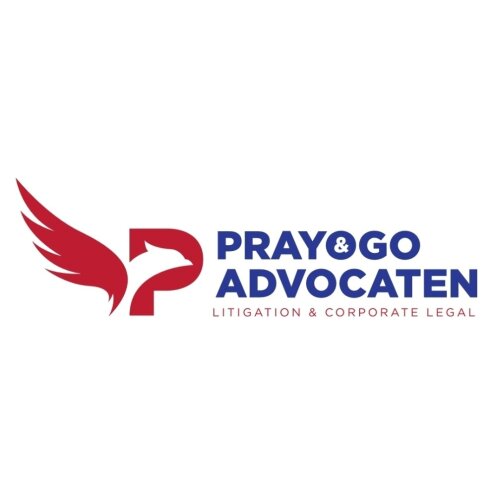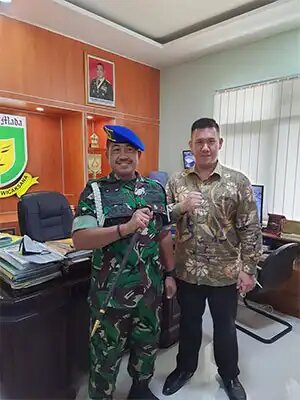Best Child Custody Lawyers in Indonesia
Share your needs with us, get contacted by law firms.
Free. Takes 2 min.
Free Guide to Hiring a Family Lawyer
Or refine your search by selecting a city:
List of the best lawyers in Indonesia
About Child Custody Law in Indonesia
Child custody, referred to as "hak asuh" in Indonesia, is an essential aspect of family law concerning the care and guardianship of children following the separation or divorce of their parents. The primary focus of child custody arrangements in Indonesia is the welfare and best interests of the child. Indonesian law typically relies on traditional family structures and adheres to a blend of civil law and customary (adat) law, with considerations given to the religious and cultural context of the family involved. In most cases, mothers are granted custody of young children, especially those under the age of twelve, while arrangements for older children depend on the best interests and welfare of the child.
Why You May Need a Lawyer
Seeking legal advice becomes crucial in child custody cases for several reasons. Situations where you might need a lawyer include when parents dispute custody arrangements, when there are concerns about a child's safety, when modifications to existing custody orders are necessary, or when parents wish to establish joint or shared custody. Additionally, if one parent intends to relocate with the child or if there are international custody issues, legal assistance will be important to navigate the complexities involved. A lawyer can provide critical support by ensuring your rights and your child's wellbeing are protected under Indonesian law.
Local Laws Overview
The key legal framework for child custody in Indonesia is provided by:
- The Marriage Law of 1974, which covers custody issues upon divorce;
- The Child Protection Law of 2002, emphasizing the needs and rights of children;
- Islamic law (for Muslim families) often aligns with civil codes but may differ in terms of guardianship arrangements.
The Indonesian judiciary system generally considers the child's health, safety, education, and emotional development when determining custody. Courts also tend to favor arrangements that allow children to maintain a relationship with both parents whenever possible.
Frequently Asked Questions
What factors influence child custody decisions in Indonesia?
Factors include the child's age, the parent's ability to provide a stable environment, emotional ties with each parent, and, in Muslim families, adherence to Islamic principles.
At what age can a child decide where they want to live?
While the law does not specify an exact age, children over the age of 12 may have their preferences considered by the court.
Can custody arrangements be modified?
Yes, if changed circumstances justify it and the modification serves the child's best interests.
Is joint custody recognized in Indonesia?
Joint custody is not a common arrangement, but it can be agreed upon by both parents and recognized by the court if deemed in the child’s best interest.
What happens if one parent wants to relocate with the child?
The relocating parent usually requires consent from the other parent or permission from the court to ensure the relocation serves the child’s best interests.
How are custody disputes resolved in Indonesia?
Custody disputes typically involve mediation and, if unresolved, are decided by the family court based on the child's best interests.
How does domestic violence impact custody decisions?
Evidence of domestic violence can significantly impact custody decisions, possibly resulting in restricted visitation rights for the abusive parent.
Do I need a lawyer for an uncontested custody case?
Even in uncontested cases, a lawyer can ensure your agreement is legally sound and that all necessary paperwork is correctly filed.
Can grandparents apply for custody?
Yes, if both parents are deemed unfit or unable to care for the child, grandparents or other relatives may apply for custody.
What role does religion play in custody decisions?
Religion can be a significant factor, particularly in Muslim families, where religious principles might influence custody arrangements and decisions.
Additional Resources
For further assistance and information, consider reaching out to the following:
- The Ministry of Women's Empowerment and Child Protection, which can offer guidance related to child welfare;
- The Indonesian Child Protection Commission (KPAI) for advocacy and resources;
- Local legal aid organizations and family law practitioners specializing in child custody.
Next Steps
If you require legal assistance in matters of child custody, begin by consulting with a qualified family law attorney in Indonesia. Gather all relevant documents about your case, including marriage certificates, court orders, and any agreements previously made. Consider seeking mediation to resolve disputes amicably and prioritize your child’s welfare above all else. If you’re considering international relocation or face complex custody battles, ensure your attorney is experienced in cross-border family law issues.
Lawzana helps you find the best lawyers and law firms in Indonesia through a curated and pre-screened list of qualified legal professionals. Our platform offers rankings and detailed profiles of attorneys and law firms, allowing you to compare based on practice areas, including Child Custody, experience, and client feedback.
Each profile includes a description of the firm's areas of practice, client reviews, team members and partners, year of establishment, spoken languages, office locations, contact information, social media presence, and any published articles or resources. Most firms on our platform speak English and are experienced in both local and international legal matters.
Get a quote from top-rated law firms in Indonesia — quickly, securely, and without unnecessary hassle.
Disclaimer:
The information provided on this page is for general informational purposes only and does not constitute legal advice. While we strive to ensure the accuracy and relevance of the content, legal information may change over time, and interpretations of the law can vary. You should always consult with a qualified legal professional for advice specific to your situation.
We disclaim all liability for actions taken or not taken based on the content of this page. If you believe any information is incorrect or outdated, please contact us, and we will review and update it where appropriate.
Browse child custody law firms by city in Indonesia
Refine your search by selecting a city.















